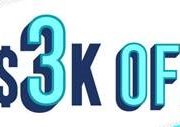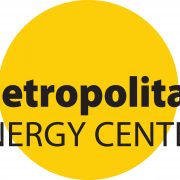For fiscal year 2019 (July 2018 through June 2019), the Missouri Department of Natural Resources will fund $2.75 million in government truck repower and replacement projects.
Implementation Guidelines
Deadline: Monday Dec. 31, 2018 at 5 p.m. CST.
Eligibility: Qualifying applicants include government agencies that own eligible trucks: “Government” shall mean a State or local government agency. This category includes a school district, municipality, city, county, special district, transit district, joint powers authority, or port authority, owning fleets purchased with government funds. It also includes a tribal government or native village. The term “State” means the several States, the District of Columbia, and the Commonwealth of Puerto Rico.
Key Program Requirements:
- Eligible engine model years 1992-2009.
- Eligible vehicles are Class 4-8 with GVWR greater than 14,000 pounds.
- Older engine or vehicle must be permanently disabled.
- New diesel, biodiesel, CNG, propane and all-electric engines are all eligible for funding.
- The program provides up to 75% of the cost of an engine repower.
- The program provides up to 50% of the cost of a new vehicle.
- For this round, maximum request from a single applicant is $1 million.
- Applications submitted through modnr.force.com.
After 35 years in the heart of Kansas City, Missouri, Metropolitan Energy Center and Kansas City Clean Cities are moving to . . . the heart of Kansas City, Missouri. We’re upping stakes next week and heading just a bit west and north of our old digs at 38th and Paseo.
Our new office will be located just west of the Bank of America at the southwest corner of 31st and Main. Our official address will be 31 West 31st Street, Kansas City, MO 64108. Beyond that, our contact information will remain unchanged. And just in case you’ve had issues making contact with MEC staff in the past few days – well, now you know why.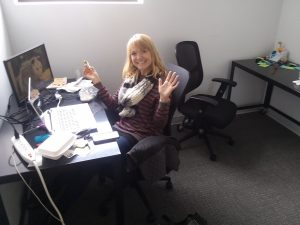
MEC Communications Coordinator Beth Pauley hard at work in our new offices.
At the moment, the office is a maelstrom of boxes and cardboard and packing tape and long-forgotten teapots and scuba diving gear (no, seriously – it’s amazing what you find when you’re in the middle of moving). And while we’ll miss our old home, we’re looking forward to a cool new location. Fittingly enough, it’s in a building that was restored and rebuilt – just our style.
When you drop by, feel free to park in the lot immediately east of the office – just don’t park among the U-Haul trucks on the west wall of the lot. There are spaces right in front of 31 West 31st, but it can get a bit tight backing out when leaving during rush hour.
We look forward to welcoming you to our new space, and to more great years ahead!
FOR IMMEDIATE RELEASE
CELEBRATING 35 YEARS – Metropolitan Energy Center is celebrating 35 years of energy transformation in the heartland
Join us to celebrate 35 years of energy efficiency achievements, and to support the future of energy conservation and clean transportation in the heartland.
Media contact: Beth Pauley, beth@metroenergy.org
402-469-4091
Monday, October 22nd
MEC 35th Anniversary Gala
Lifted Spirits Distillery
November 9th, 2018
5:30 – 8:30 p .m.
1734 Cherry Street
Kansas City, MO 64108
Kansas City, MO – Metropolitan Energy Center has a long history of providing energy efficiency resources at the local and regional levels. This year, we are celebrating 35 years of energy transformation achievements in the heartland. MEC invites the community to celebrate alongside the stakeholders who have made these achievements possible. Additionally, attending this event will serve as a launch pad to support the future of energy conservation and clean transportation.
Some of the notable accomplishments and partnerships MEC is celebrating include:
- Participation in Electrify Heartland and collaborating with KC P&L and Black & Veatch to establish Kansas City as the healthiest ecosystem for Electric Vehicles in the country.
- Participation with the City Energy Project to develop a set of policies and programs to encourage energy efficiency.
- Launched The Energy Solutions Hub, an energy resource center that is a continuation of The City Energy Project. The Energy Solutions Hub aims to cut energy use in Kansas City by 4 percent in the next 2 years, which would save over $40 million annually in consumer energy costs. Additionally, it would offset as much CO2 as burning 37 million gallons of gasoline.
- 20 years of Clean Transportation projects advancing the use of alternative fuels with the Kansas City Regional Clean Cities Coalition. Recently, we worked with the Kansas City International Airport to deploy the first fleet of electric buses at an airport in the country.
Both our programs are public and private partnerships that join together businesses, public agencies and the community to combine resources and transform fuel and energy practices. Although it has been a productive 35 years, the demand for these programs continues to grow. Our staff is committed to continuing these projects that promote healthier air quality, cost-saving resources, and overall sustainability. Through these efforts, we can work together to ensure Kansas City will be livable for future generations.
To register or sponsor the event, visit www.metroenergy.org or contact Beth Pauley at beth@metroenergy.org.
We can’t wait to celebrate with you!
The three organizations who contributed to Kansas City’s #1 rated Electric Vehicle ecosystem in the US celebrate National Drive Electric Week
Media contact: Beth Pauley, beth@metroenergy.org
Tuesday, September 4th
402-469-4091
Kansas City, MO – Metropolitan Energy Center is joining Kansas City Power & Light and Black and Veatch to celebrate National Drive Electric Week! Black and Veatch will be hosting the event at its World Headquarters in Overland Park on Thursday, September 13th from 10:00 AM until 2:00 PM. National Drive Electric Week is a national celebration to raise awareness about the availability of plug-in vehicles and highlight the benefits of all-electric and plug-in hybrid-electric cars, trucks, motorcycles, and more.
Black and Veatch, Kansas City Power & Light, and Metropolitan Energy Center have worked together to implement charging stations and further the necessary infrastructure to establish Kansas City as the best ecosystem in the country for electric vehicles. This collaboration is the local result of Electrify America, which is an initiative of the Volkswagen Settlement that will invest $2 billion over the next 10 years in Zero Emission Vehicle (ZEV) infrastructure, education, and accessibility. Find out more about the event and register here.
Attendees will have the opportunity to learn more about Electric Vehicle resources and test drive electric vehicles from local dealerships. Additionally, volunteers will be displaying a variety of models of Electric Vehicles, including modern models and classics with conversions.
The Black and Veatch headquarters is the perfect place to celebrate National Drive Electric Week. Not only is Kansas City the best city in the country for EV infrastructure, but Electrify America selected Black and Veatch as one of the two companies to continue the installment of electric vehicle chargers across the United States. Soon, more cities across the U.S. will get to experience the luxury of widespread charging ports like Kansas Citians do.
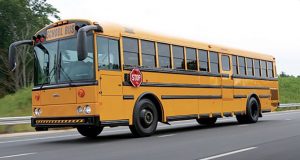
The State of Missouri is requesting applications from schools and school fleet operators to replace old diesel buses. This funding opportunity is open to public and private schools and school districts and for-profit operators of school bus fleets, providing up to $22,000 for each vehicle replaced. The Missouri Department of Natural Resources, which administers the program, anticipates 70-75 bus replacements statewide through this one-year cycle.
The deadline for districts and school transportation providers to apply is Friday, September 14th.
Applicants may apply for funding for up to 3 buses if replacing diesel with diesel; however, they can apply for funding for up to 10 buses if replacing diesel vehicles with propane, compressed natural gas (CNG), all-electric buses, or other clean-fuel alternatives. Shuttle buses, paratransit or any school vehicles not powered by diesel are not eligible.
This funding cannot be used to expand a fleet, and only buses powered by engine model years 1995 – 2006 are eligible. Replacement buses cannot exceed 125% of the original buses’ GVWR, and a minimum GVWR of 14,000 pounds is required. Applicants must be able to fund the entire program up front, since it is based on reimbursement from Missouri DNR. Federal funds cannot be used to provide the required 75% match for this program, nor can other funding from the VW Trust.
There are other details and restrictions that apply to this program – please read all information carefully before applying! Request For Applications For Early Replacements Of School Buses contains detailed information on program requirements and timelines. For guidelines and a link to updates on opportunities for other vehicle categories, including heavy trucks, cargo moving and electric vehicle charging systems, we recommend Volkswagen Trust – Apply For Funding. For specific questions about program requirements, please contact Mark Leath at the Department of Natural Resources, and as point of contact for application submission.
Dear Director Brunetti, Mr. Watson and Ms. Waters:
Metropolitan Energy Center, Kansas City Regional Clean Cities and Central Kansas Clean Cities appreciate the opportunity to submit comments on behalf of our members and stakeholders regarding the Kansas Department of Health and Environment (“KDHE”) draft mitigation plan for the use of the funds available to Kansas under the Volkswagen Environmental Mitigation Trust (“EMT”).
Our overall goal is to ensure that investments made by KDHE through the EMT result in meaningful, long-term and cost-effective reductions in nitrogen oxides (“NOx”) and other polluting emissions from Kansas’ transportation sector, and that new alternative fuel projects are feasible to carry out under the program rules.
First, we would like to thank KDHE for undertaking a public process prior to developing the draft plan. Numerous elements of the draft are excellent – especially noteworthy is your intent for using the DERA option – and we offer the following recommendations for the Draft Mitigation Plan to maximize the impact of EMT funds:
• Ensure fair access to funds across both urban and rural areas. The draft plan states that KDHE anticipates offering most opportunities statewide, but at the same time may list priority areas based on larger NOx emissions. About 32% of Kansans live in rural areas, higher than the national average . The DERA option may be particularly beneficial for school bus fleets serving rural areas, which must travel longer distances between students than urban areas.
• Give priority to alternative fuel replacements by limiting diesel replacements. Diesel replacement funding is at the same reimbursement rate as alternative fuels in some categories. Under section 3 of the initial spending plan breakout KDHE proposed to provide 25% of the total cost to replace an eligible diesel engine, regardless of what type of engine with which it is replaced. Alternative fuel vehicles and electric vehicles (AFVs and EVs) typically have greater up-front costs than traditional diesel, which is a disincentive for fleets to buy-in when they can get the same reimbursement for a less expensive diesel replacement. Specific recommendations:
>> Require all diesel engines purchased – for replacement or repower, for mobile or stationary – to be B20 compatible, where B20 is a blend of 20% biodiesel with 80% ULSD.
>> Provide greater funds in all categories for alternative fuel and electric compared to their diesel equivalents. Alternatively, limit diesel replacements to two per application, but allow a greater number of replacements (up to 10) per applicant for new alternative fuel projects. Fleets that commit to alternative fuel often phase in this investment over three or more years. Allowing larger numbers of AFV will permit this approach. It also generates greater NOx reduction by stimulating the use of cleaner engines faster.
>> Especially in certain low-speed and stop-start duty cycles, diesel engines do not perform up to their modeled EPA emission standard. Provide for higher reimbursement rates in your final plan and/or in your RFPs for alternative fuel trash haulers but also for other AFV replacements in low-speed and stop-start duty cycles.
>> Allow for diesel replacements only on older vehicles (MY2002 or earlier).
• Use the HDVEC emission calculator for RFP evaluations. On page 8, section D, you mention use of DEQ for simplified purposes of assigning emission values to project types. However, for evaluating RFP submissions on a qualitative basis, we recommend using the Heavy-Duty Vehicle Emissions Calculator (HDVEC) for the most up-to-date alternative fuel emission data. These data are incorporated into tools built and managed by Argonne National Laboratories and are updated as frequently as feasible when new data comes available. Argonne recently released this new tool based on its GREET and AFLEET models, as well as on EPA’s MOVES model. If electric generation and transmission emissions are to be considered in the calculation, production and transport should be considered for the other fuel options, as well.
From the HDVEC web site : “The Heavy-Duty Vehicle Emissions Calculator (HDVEC) was developed to estimate the vehicle operation nitrogen oxide (NOx) and particulate matter (PM2.5), as well as the well-to-wheel greenhouse gas emissions (GHGs) of commercially available alternative fuel medium- and heavy-duty vehicles. This tool is ideally suited to aid fleets and decision makers when comparing vehicle technologies for emission reductions and to consider allocation of funding.
“The tool can calculate results for 3 project types:
• Environmental Mitigation w/ Scrappage
New alternative fuel versus new diesel, plus additional benefit from early retirement of scrapped vehicle.
• Environmental Mitigation w/ Repower
Vehicle after repower versus diesel vehicle before repower
• Clean Vehicle Replacement
New alternative fuel versus new diesel.
“The first two are specifically for environmental mitigation projects such as those funded under the Clean Diesel Settlement or the Diesel Emission Reduction Program, while the third provides results without the scrappage benefit.”
• Confirm beneficiaries are primarily based in Kansas. Due to the nature of vehicles and the high density of Kansas’ population residing near the Kansas-Missouri border, there will, of course, be some usage of repowered and replaced vehicles across state lines. However, it is important to prioritize KDHE’s VW settlement funds for Kansas-based fleets. This can be measured by applicants providing justification that at least 50% of their fleet’s run time is within Kansas.
Thank you for the opportunity to comment and for all your hard work on behalf of Kansas citizens.
Signed,
Kelly Gilbert
Executive Director, Metropolitan Energy Center
Coordinator, Kansas City Regional Clean Cities Coalition
Tami Alexander
Program Coordinator, Metropolitan Energy Center
Coordinator, Central Kansas Clean Cities Coalition
ENERGY SOLUTIONS HUB with Metropolitan Energy Center can help you save on energy costs and live in a more comfortable climate year round.
“Speed Greening” – Speed Dating, Energy Efficiency style!
Media contact: Beth Pauley, beth@metroenergy.org
Tuesday, August 21st
402-469-4091
Kansas City, MO – Metropolitan Energy Center is joining Kansas City Power & Light, Spire Energy, and fellow energy enthusiasts to host a “speed greening” happy hour! Speed Greening is the energy efficiency equivalent of speed dating, where guests will have the opportunity to meet their choice of energy solutions vendors in a quick, informal round-table.
Kansas City residents are becoming accustomed to extreme weather patterns, and these energy efficiency measures will decrease the overall environmental impact your energy use has in the community. Best of all, they are cost-efficient and will eventually pay for themselves.
This is a great way to simultaneously tackle your costs and slow the future effects of climate change by reducing your building’s greenhouse gas emissions.
This event will also introduce you to the MEC’s Energy Solutions Hub, which is a metro-wide continuation of the great work the Kansas City Energy Project began to improve the energy efficiency of buildings in Kansas City. Ticket price includes admission as well as refreshments, including happy hour beverages.
Although our Energy Solutions Hub is new, we have been local leaders for energy efficiency for 35 years. If you cannot attend the networking event and want more information on how you can live in a comfortable climate without burning your pocket book, contact Sara (Sara@metroenregy.org). We can help you develop a request for proposals to send out to potential auditors, evaluate their responses, schedule your audit, and file your rebate.
Wed, May 23 | 2:30 pm | Project Living Proof | 917 Emmanuel Cleaver II Blvd, KCMO
Kansas City Regional Clean Cities is hosting a grant workshop on three new funding opportunities totaling more than $140 million nationwide. These programs cover diesel emissions reduction, low- and zero-emission transit fleets, and infrastructure and super-fast charging, plus other projects. We’ll cover eligibility, the application process, financial and cost-share requirements, and much more in this free workshop.
All interested potential grant applicants are cordially invited to participate. This includes state and local governments, transit agencies, MPOs, non-profit organizations and school districts. Although for-profit companies are not eligible to apply directly for these grants, Clean Cities routinely works with our corporate fleet members to administer grants for their projects. Interested businesses are welcome to attend.
Join us in person at Project Living Proof, or attend virtually via GoToMeeting or telephone at (646)749-3122, Access Code: 448-679-701. If attending in person, please park at the Anita Gorman Discovery Center, 4750 Troost Avenue, Kansas City, MO, then follow the boardwalk north to PLP’s back door.
For questions or to RSVP for the workshop, email David Albrecht or call (816) 531-7283.
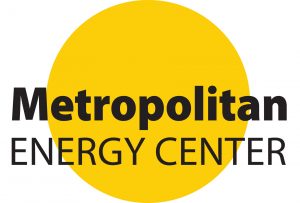
About Us
Metropolitan Energy Center (MEC) is a 501(c)(3) nonprofit organization. Our mission is to create resource efficiency, environmental health, and economic vitality in the Kansas City region – and beyond. Learn more about us and our programs.
Some images courtesy of all-free-download.com

